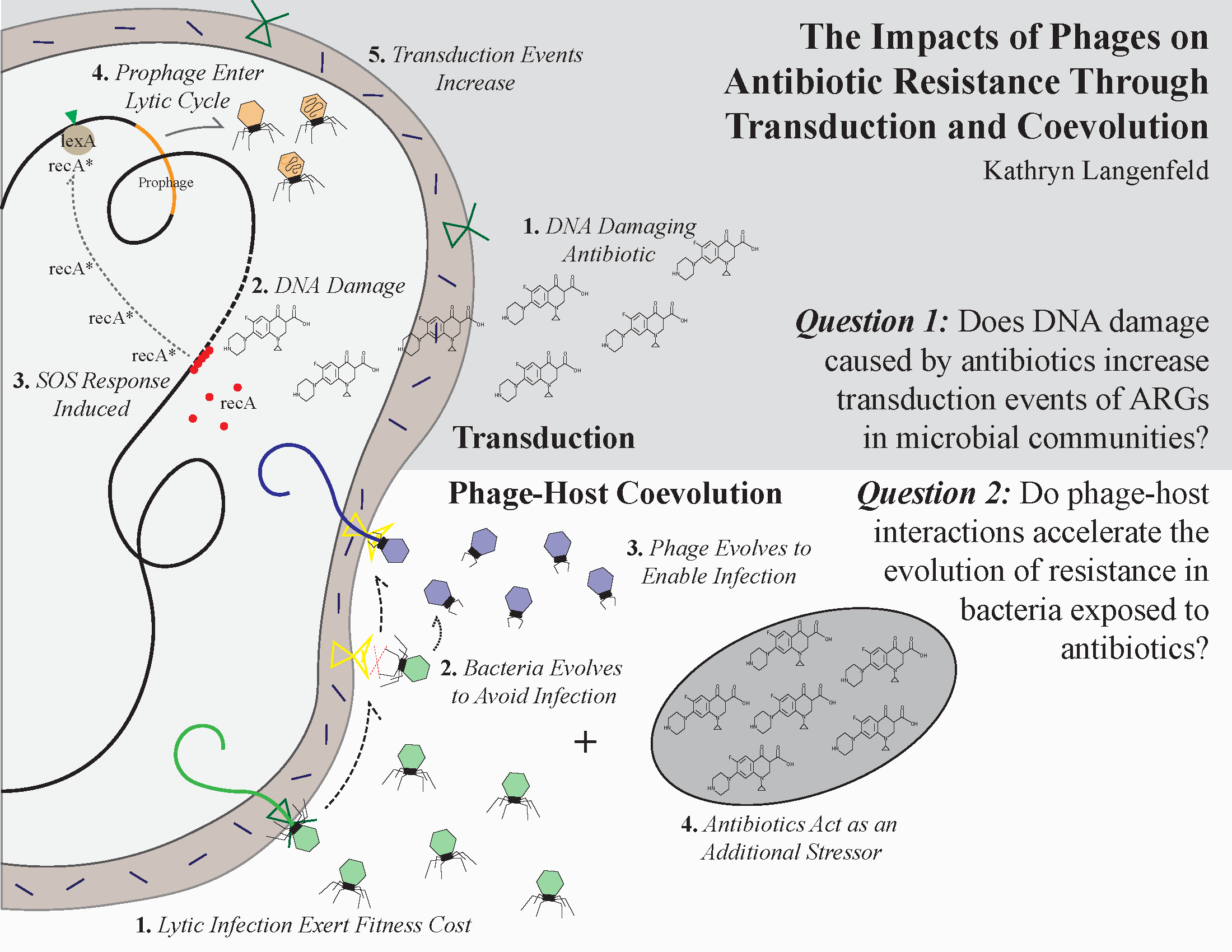Kathryn Langenfeld received a $10,000 mini-grant from ITiMS for this projct.
The Impacts of Phages on Antibiotic Resistance Through Transduction and Coevolution
Mentors: Melissa Duhaime, Krista Wigginton
Phages (i.e., viruses that infect bacteria) may significantly contribute to the dissemination and evolution of antibiotic resistance. Phages impact the structure and function of microbial communities through host infection and exert evolutionary pressure via host interactions that result in horizontal gene transfer, such as transduction. Antibiotic resistance is a pressing public health threat that is complicated by horizontal gene transfer of antibiotic resistance genes (ARGs) from one bacterium to another. Yet, there are significant knowledge gaps regarding the role of phages on disseminating and evolving antibiotic resistance in habitats altered by anthropogenic activity. My research is investigating how phages impact antibiotic resistant bacteria in the presence of antibiotics by evaluating whether: (1) DNA damage caused by antibiotics increases transduction events of ARGs in wastewater; and (2) phage-host interactions accelerate the evolution of resistance in bacteria exposed to antibiotics. I will implement a quantitative viral metagenomic method to assess if DNA damaging antibiotics lead to transduction events of ARGs in wastewater activated sludge. The results of this research will expand our understanding of phage-host interactions during wastewater treatment and how subinhibitory concentrations of antibiotics impact activated sludge. Additionally, I will explore if, in the presence of antibiotics, phage-host coevolution accelerates the evolution of antibiotic resistance by simulating evolution with Avida digital organisms. The proposed research will further our understanding of the importance of phage-host interactions in evolution and dissemination of antibiotic resistance.

